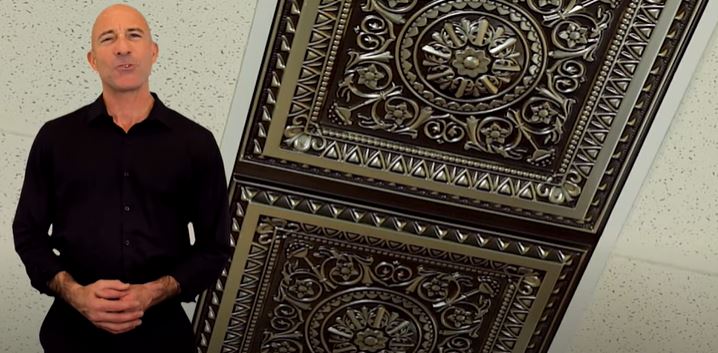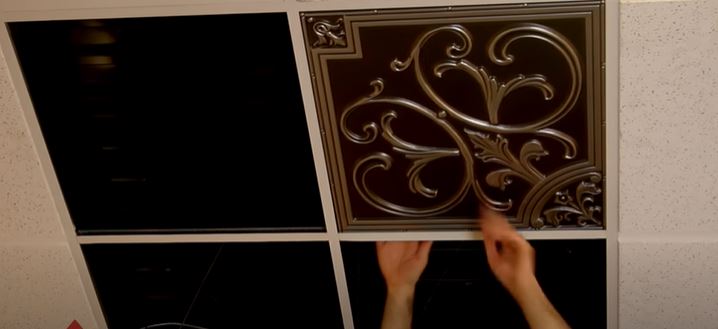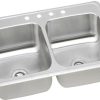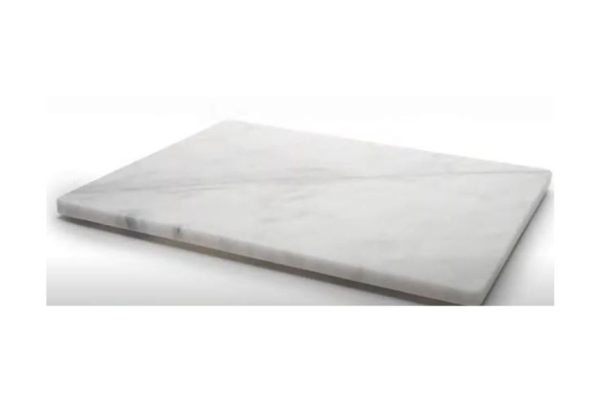Best ceiling tiles for kitchen’s overall aesthetics and functionality. Not only do they add style and elegance, but they also provide numerous benefits, such as durability, moisture resistance, and acoustic insulation. This article will explore the different types of ceiling tiles suitable for kitchens, discuss their benefits, and provide recommendations for the best available options.
SPECIFICATIONS
Style: Antique Item Weight: 15 Pounds
Product Dimensions: 24″L x 24″ W
Material: Polyvinyl Chloride (PVC)
Installation Type: Glue Down
TODAY’S BEST DEALS
 REASONS TO BUY
REASONS TO BUY
- Aesthetically pleasing: High-quality ceiling tiles can enhance the overall look of your kitchen, adding a touch of elegance and style.
- Easy installation: Many ceiling tiles are designed for easy installation, making it a convenient DIY project or a quick task for professionals.
- Durability: The best kitchen ceiling tiles are often made from durable materials that can withstand the humidity, heat, and grease in a kitchen.
- Moisture resistance: Good kitchen ceiling tiles are moisture-resistant, helping prevent mold or mildew growth.
- Acoustic insulation: Some ceiling tiles are designed to absorb sound, reduce noise levels, and create a more pleasant kitchen atmosphere.
- Easy maintenance: The best ceiling tiles for the kitchen are typically easy to clean, allowing for quick maintenance and preventing the buildup of dirt and grime.
REASONS TO AVOID
- Cost: High-quality ceiling tiles for kitchens may come with a higher price tag than other options.
- Installation requirements: Depending on the type of ceiling tiles chosen, installation may require additional materials or tools, which can increase the overall cost and complexity of the project.
- Limited design options: While many attractive ceiling tile designs are available, the options may be more limited compared to other decorative ceiling options.
- Fragility: Certain ceiling tiles can be fragile and prone to damage if not handled carefully during installation or maintenance.
- Professional assistance: For complex installations or specific designs, it may be necessary to seek professional help, adding to the project’s overall cost.
- Fire safety: It’s essential to ensure that the chosen Best ceiling tiles for kitchen meet fire safety regulations to reduce the risk of fire hazards.
Importance of Ceiling Tiles in the Kitchen
Best ceiling tiles for kitchen where functionality meets design. Ceiling tiles can elevate the overall ambiance of the kitchen by adding a touch of sophistication and visual appeal. They create a finished look and complement the existing decor, making the kitchen a more inviting and enjoyable space for cooking and entertaining.
Factors to Consider when Choosing Ceiling Tiles
Several factors need to be considered before selecting Best ceiling tiles for kitchen. These include the desired style, budget, maintenance requirements, and the specific needs of your kitchen environment. Additionally, the size and height of the ceiling, lighting considerations, and adherence to fire safety regulations are essential aspects to keep in mind.
Types of Ceiling Tiles for Kitchens
Several types of ceiling tiles are available for kitchens, each with unique features and benefits. Let’s explore some popular options:
Drop Ceiling Tiles
Best ceiling tiles for kitchen, or suspended ceiling tiles, are a versatile and widely used option for kitchens. They consist of lightweight panels suspended from a grid system. Drop ceiling tiles offer easy access to utilities hidden above the ceiling and provide excellent acoustic insulation.
Tin Ceiling Tiles
Tin ceiling tiles have a timeless and classic appeal. They are made from thin tin sheets and are known for their intricate designs and patterns. Tin ceiling tiles are durable, fire-resistant, and can add a vintage or industrial aesthetic to your kitchen.
PVC Ceiling Tiles
PVC tiles are available in various styles, patterns, and finishes, allowing homeowners to achieve the desired look for their kitchen.
Styrofoam Ceiling Tiles
Styrofoam Best ceiling tiles for kitchen are lightweight, easy to install, and cost-effective. They come in various designs and patterns, offering versatility in achieving different kitchen aesthetics. Styrofoam tiles also provide thermal insulation, helping regulate the kitchen’s temperature.
Acoustic Ceiling Tiles
Acoustic ceiling tiles are designed to absorb sound, reducing noise levels in the kitchen. They are excellent for kitchens in open-concept spaces or where noise reduction is desired. Acoustic tiles come in various materials and designs, providing functionality and style.
Benefits of the Best Ceiling Tiles for Kitchens
Choosing the best ceiling tiles for kitchen can offer numerous benefits. Let’s explore some advantages:
Aesthetics and Style
High-quality ceiling tiles enhance the overall look of your kitchen, adding a touch of elegance and style. They come in various designs, colors, and textures, allowing you to customize the kitchen’s appearance to suit your preferences.
Durability and Longevity
The Best ceiling tiles for kitchen are often made from durable materials that can withstand the challenges of a kitchen environment. They resist damage, cracking, and warping, ensuring their longevity and minimizing the need for frequent replacements.
Moisture Resistance
Kitchens are prone to high levels of humidity, steam, and grease. The Best ceiling tiles for kitchen are moisture-resistant, preventing the growth of mold and mildew. This quality helps maintain a clean and hygienic kitchen environment.
Easy Installation and Maintenance
Many ceiling tiles are designed for easy installation, making it a convenient DIY project or a quick task for professionals. They often feature interlocking systems or adhesive backing, simplifying the installation process. Additionally, ceiling tiles are typically easy to clean, allowing for quick maintenance and preventing the buildup of dirt and grime.
Acoustic Insulation
Best ceiling tiles for kitchen are designed to absorb sound, reduce noise levels, and create a more pleasant kitchen atmosphere. This is especially beneficial in open-concept kitchens or homes with high noise levels.
Factors to Consider when Installing Ceiling Tiles
Before installing ceiling tiles in your kitchen, several factors should be taken into account:
Ceiling Height and Size
Consider the height and size of your Best ceiling tiles for kitchen. Ensure the chosen tiles fit well and maintain adequate clearance from appliances and fixtures.
Lighting Considerations
Plan the placement of lights in coordination with the ceiling tiles. Consider recessed or track lighting systems that integrate well with the chosen tiles and enhance the kitchen’s overall illumination.
Fire Safety Regulations
Ensure that the selected ceiling tiles meet fire safety regulations. Look for tiles with fire-resistant properties to minimize fire hazards in the kitchen.
Professional Installation vs. DIY
Consider hiring professionals for the installation or opt for a DIY approach. Complex structures or specific designs may require professional assistance, ensuring proper alignment and minimizing the risk of damage.
Tips for Maintaining and Cleaning Ceiling Tiles
To keep your Best ceiling tiles for kitchen in optimal condition, follow these tips for maintenance and cleaning:
- Regularly dust the tiles using a soft cloth or duster to prevent the accumulation of dirt and debris.
- Use a mild detergent mixed with warm water to clean the tiles gently. Avoid harsh chemicals that may damage the surface.
- Wipe off any spills or stains promptly to prevent them from setting into the tiles.
- Avoid abrasive scrubbing or excessive moisture, as it may damage certain ceiling tiles.
- Inspect the tiles periodically for any signs of damage or wear. Replace any damaged tiles promptly to maintain the overall integrity of the ceiling.
Conclusion
Choosing Best ceiling tiles for kitchen is a decision that combines style and functionality. With various options available, it’s essential to consider factors such as aesthetics, durability, moisture resistance, ease of installation, and acoustic insulation. By selecting suitable ceiling tiles, you can enhance the overall look of your kitchen while enjoying the benefits of a durable, easy-to-maintain ceiling surface.
FAQs
Q: Can I install ceiling tiles in my kitchen myself?
A: Yes, many ceiling tiles are designed for DIY installation. However, complex installations or specific designs may require professional assistance.
Q: Are ceiling tiles easy to clean?
A: Yes, most ceiling tiles are easy to clean. Regular dusting and gentle cleaning with mild detergent and warm water are usually sufficient.
Q: Do ceiling tiles provide any insulation benefits?
A: Some ceiling tiles, such as acoustic or Styrofoam tiles, offer thermal or acoustic insulation properties, enhancing the overall comfort of your kitchen.
Q: Can I paint ceiling tiles to match my kitchen decor?
A: It depends on the type of ceiling tiles. Some tiles are paintable, while others may come in various colors and finishes, allowing you to find a suitable match for your kitchen.
Q: How long do ceiling tiles typically last in a kitchen?
A: The lifespan of ceiling tiles varies depending on the quality of the tiles and the kitchen environment. High-quality tiles can last for many years with proper care and maintenance.
















